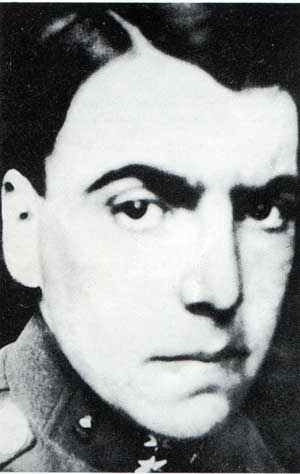Ariel Quartet and Orion Weiss at the Terrace Theater
By Stephen Brookes • The Washington Post • November 12, 2012
Cataclysmic times, it’s often said, produce great art. Take the early 20th century, when a Europe ripped apart by war and social upheaval suddenly found 19th century Romanticism irrelevant — and began giving birth to the revolutionary, exhilarating and world-changing movement known as Modernism.
That transition was the focus of an intriguing concert titled “Between Two Worlds: Jewish Voices in Modern European Music” on Sunday night at the Terrace Theater, where the Ariel String Quartet teamed up with pianist Orion Weiss for the music of composers from Arnold Schoenberg to the brilliant but little-known Erwin Schulhoff — all profoundly shaped by the trauma of their times. Erwin SchulhoffOne of the most unusual figures of the period, Schulhoff was a wildly inventive Czech composer (one movement of his 1919 “Five Picturesques” is entirely silent, predating John Cage by decades) who died in a concentration camp in 1942. His String Quartet No. 1, written in 1924, is a virtual snapshot of the era: taut, explosive modernist gestures burst through the music as if impatient to be born. A fascinating work — and necessary listening for anyone interested in the period — it was brought off with style and wit by the young Ariel players.
Erwin SchulhoffOne of the most unusual figures of the period, Schulhoff was a wildly inventive Czech composer (one movement of his 1919 “Five Picturesques” is entirely silent, predating John Cage by decades) who died in a concentration camp in 1942. His String Quartet No. 1, written in 1924, is a virtual snapshot of the era: taut, explosive modernist gestures burst through the music as if impatient to be born. A fascinating work — and necessary listening for anyone interested in the period — it was brought off with style and wit by the young Ariel players.
Orion Weiss, last heard at the Terrace in a brilliant recital back in January, took the stage for the second of Schoenberg’s Three Piano Pieces, Op. 11 from 1909. Weiss has both powerful technique and exceptional insight, and brought an almost sculptural presence and weight to the music. Erich Korngold’s melodic String Quartet No. 3 in D Major, Op. 34 followed, bringing an elegant if not exactly revolutionary close to the first half of the evening. Written in 1945, as the composer abandoned a successful career in Hollywood, it recasts some of his best-known melodies — including the theme from the film “Between Two Worlds” — in a more “serious” classical vein.
But the indisputable climax of the program (which marked the opening of Pro Musica Hebraica’s sixth season) was Ernest Bloch’s magnificent 1923 Quintet for Piano and Strings No. 1. It’s an absolute juggernaut of a work, a pull-out-the-stops gallop into the modern world, full of huge and hungry gestures and ferocious intensity. With Weiss at the piano, the Ariel players seemed to come completely into their own for the first time all evening, playing with exceptional boldness and confidence — a blazing, larger-than-life performance that seemed to celebrate the triumph of the human spirit, even from the depths of chaos.


Reader Comments